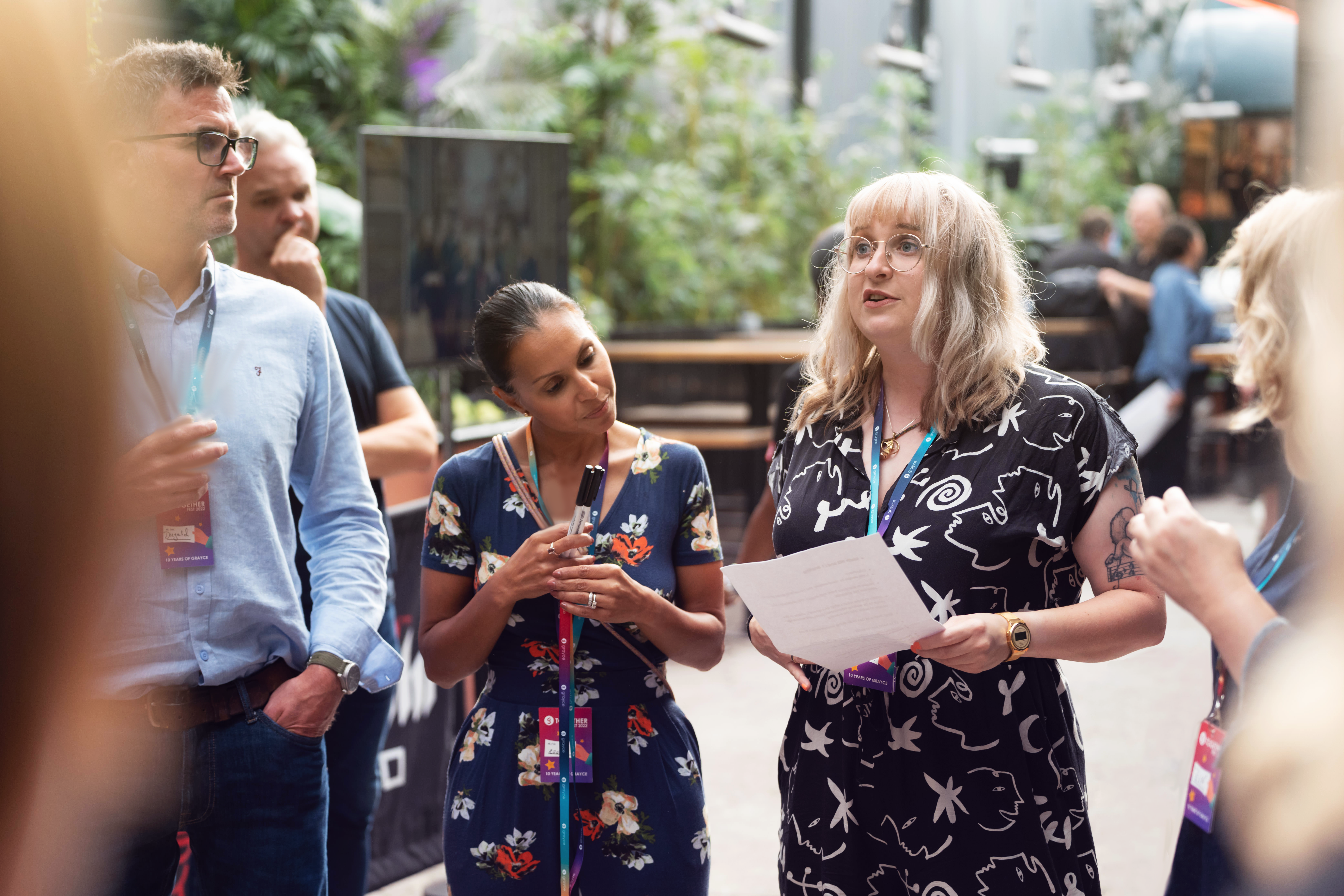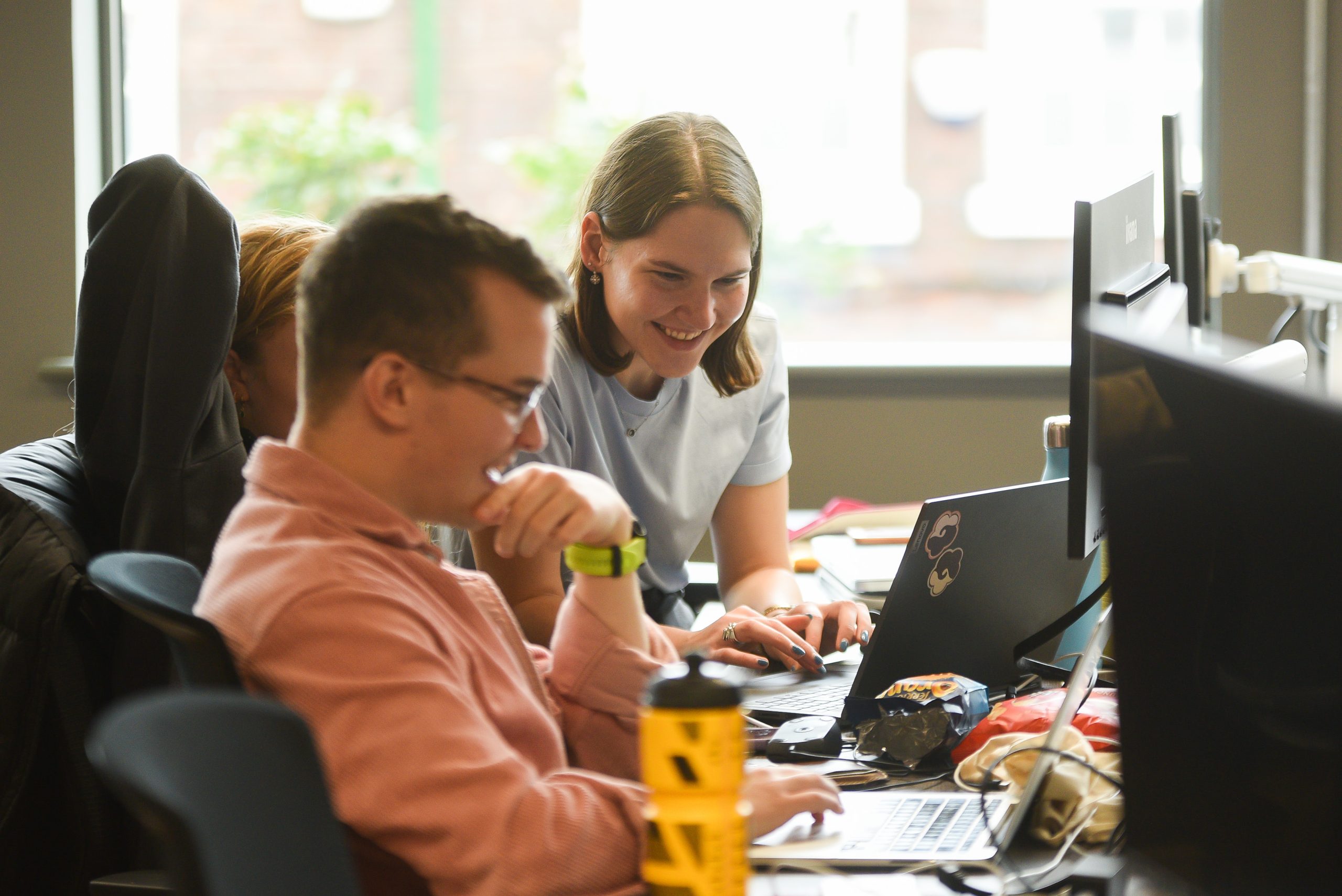
How I manage chronic fatigue syndrome at my graduate job
This ME Awareness Week, Grayce Analyst, Tom Malone shares his experience living and working with chronic fatigue syndrome, also know as ME.
I’m Tom, an L2 Grayce Analyst based at a FTSE 100 Pharmaceutical company, working in their Strategies, Tools and Planning department. As it’s ME (Myalgic Encephalomyelitis / Chronic Fatigue Syndrome) Awareness Week, I’m sharing my experience with a disorder that often goes under the radar, but effects millions of people globally, along with some ways I manage my disorder while at work.
ME / CFS doesn’t have a fixed definition but most people understand it be a disease of the central nervous system that leaves sufferers with intense levels of fatigue. However, ME / CFS is a disease with its own pathology and symptoms don’t have to include tiredness. Sufferers may experience symptoms such as intense muscle soreness, brain fog, and debilitated strength. But it is typically experienced as chronic periods of fatigue.
The quality of life for anyone with the disorder is greatly impacted. Some are even unable to get out bed, feed themselves or perform basic motor movements. The experience of Long COVID patients has been directly compared to the experience of patients with ME / CFS. Some people with Long COVID are similarly unable to live the normal lives they had before the virus, with chronic instances of post-viral fatigue being one of the more common reported symptoms.
Impacts of chronic fatigue
I’ve been working with ME / CFS just over two years now. If you were to rate the intensity of experienced ME / CFS on a scale of 0-100%, I’d be at about 5% at my worst. I typically suffer from intense periods of fatigue after only moderate activity (clinically known as ‘post-exertional malaise’), as well brain fog and – only when it’s really bad – dizziness, high temperatures, and nausea. My experience is no different to anyone who’s over-exerted themselves for a sustained period of time, it just takes me less time to get there, and I feel it for much longer and to a greater degree.
My experience is a very common for people with the disease and yet many find it hard to attain support for their lived experience. It is not uncommon for sufferers to be called lazy – myself included – by medical professionals and the general population. It’s also taken years for organisations like the ME Association to gather funding to research the origins of the disease and to lobby medical bodies to have unsupported therapies like Graded Exercise Therapy (GET) that do more harm than good removed from the NICE guidelines.
Support at Grayce
Tom's Delivery Manager, Dave Murat says: "I've empowered Tom to look after himself in a way that works for him as he's been open and honest with me about his needs. He's responsible for balancing his workload which has helped with his growth and development and also with building trust and rapport between us. I know then that if he's unwell, he'll come to me so that we can work together on the appropriate solution that meets his needs, whilst also enabling him to keep delivering the high standards he's known for in his client work."
Raising awareness
It’s essential that we raise awareness for those with ME / CFS, this year more than ever, as it carries more value given the commonalities between people with Long COVID. This is the reason we’re seeing important collaborations between organisations like the ME Association and the Long COVID Alliance. Scientists are leveraging the wealth of existing research into ME / CFS, whilst also utilising the influx of new data from patients with Long COVID, with the aim of developing a cure for both diseases.
Top tips for managing chronic fatigue
I’m sharing three things I do daily that help me stay as fresh as possible that you can do too.
- Early nights. We should get around 8 hours of sleep a night. Some of the best ways to get the most out of your sleep are to keep the room cool, dark, and quiet, as well as keeping a night time routine. You should also help yourself reduce caffeine intake and your overall screen time before bed.
- Hydrate. Our water intake is directly linked to variability in cognition and has a massive impact on your body’s ability to function. It also impacts your body’s ability to regulate its core temperature and directly impacts your energy levels through boosting your metabolism.
- Don’t overestimate what you can achieve each day. This has been a big one for me. Setting yourself realistic and achievable goals based on what your capable of doing and recovering from is the most effective, but often overlooked, aspect of working life. It’s good to push yourself sometimes, but this can often backfire and leave us stressed and overtired. So it’s really important to understand what you’re capable of doing on a given day, both professionally or physically.
Many doctors use Spoon Theory when working with the chronically ill. It’s a framework for measuring how much energy it takes for you to complete a set of given tasks based on how many units (or spoons) of energy it takes for you to complete them. Say, you have 10 spoons of energy a day. It takes 5 spoons to go to work. 4 spoons to go a doctor’s appointment. And 3 spoons to do the washing up.
Never over-estimate how much energy you need to complete your tasks. Many of us will be familiar with the concepts of estimation over the course the projects we support, so that we can keep to a deadline. We can apply this to the amount of energy we have to plan our working days more carefully and effectively.
The last 14 months have brought into focus how important it is for us all to look after our health and wellbeing. This ME Awareness Week, please look after yourself, stay hydrated, and get an early night. You’ll thank me for it!
Find out how you can help support ME / CFS Awareness initiatives




